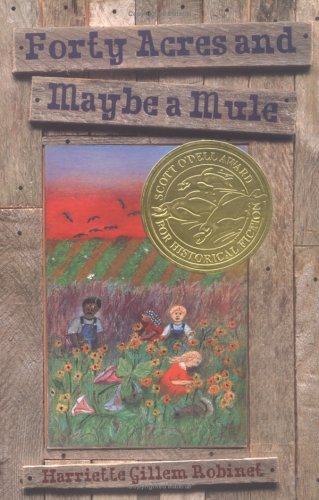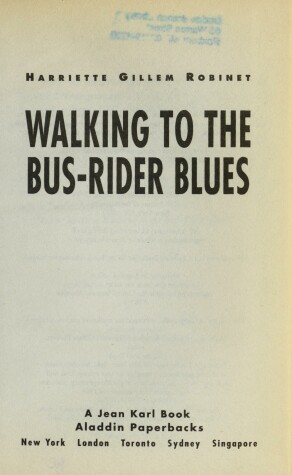Jean Karl Books (Prebound)
2 total works
That night Pascal, twelve, and his friend Nelly, eight, ran away with Gideon. They were going to get a farm. They had to hide lest they be taken back into slavery. Also, land didn't seem as easy to find as Gideon had thought. What did it mean if you had to run and hide, if you were crippled and couldn't do what others did?
Joined by other former slaves, Pascal, Gideon, and Nelly did find a farm. They even found a school that Pascal and Nelly could attend. They learned about dignity and the Freedmen's Bureau and the Union League and the Republicans. But they also discovered it was not easy for former slaves to stay free and to keep their land.
Based on the author's research about events in the South in 1865, this is the story of what might have happened to one small group of African Americans.
the Alabamy bus-rider blues.
I got me a feeling, deep down inside,
It ain't never ever gonna be the same."
During the Alabama bus boycott, six months after Rosa Parks made her famous bus protest, Alfa Merryfield and his family struggle to pay the rent. But someone keeps stealing their rent money -- and now someone is accusing them of stealing!
With only a few days left before rent is due, Alfa and his sister, Zinnia, know they don't have much time. To solve this mystery, they must "walk the walk and talk the talk of nonviolence" that Martin Luther King, Jr. and other leaders preach -- and what they discover may be more than they dreamed...

